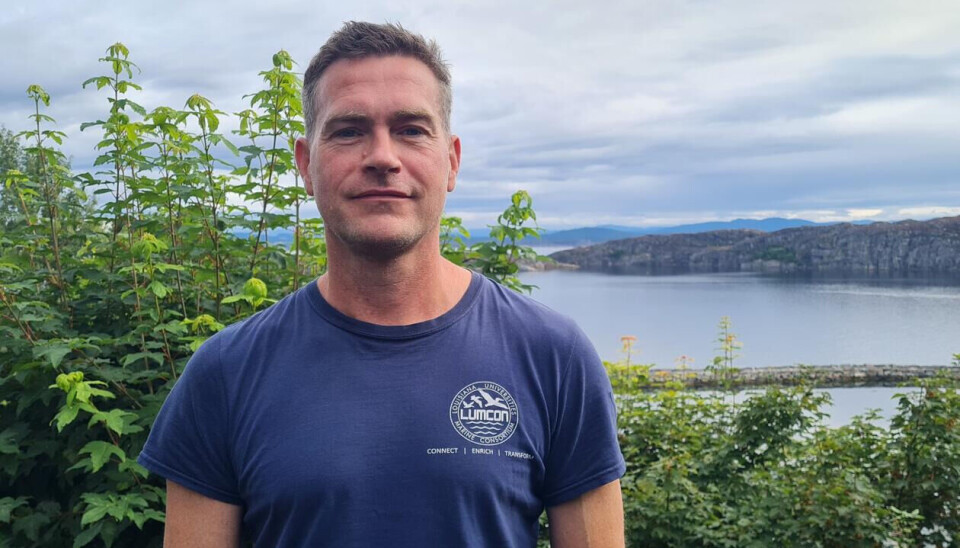THIS CONTENT IS BROUGHT TO YOU BY the University of Bergen - read more

Exploring life underneath the ocean floor
The deep sea still remains the least studied environment on Earth. The new director at the Centre for Deep Sea Research at the University of Bergen, Steffen Leth Jørgensen, is trying to do something about that.
Covering 70 per cent of the Earth’s surface, the processes on and under the ocean floor are an integral part of life as we know it.
In fact, one per cent of all living biomass is found within the sediments of the seafloor. But the deep sea still remains the least studied environment on Earth.
Finding and closing knowledge gaps
At the Centre for Deep Sea Research at the University of Bergen, the recently appointed director Steffem Leth Jørgensen and his team are conducting pioneering research. They are dedicated to exploring and gaining new knowledge of geological and biological processes in the deep sea, especially in the high north and ice-covered regions.
“The research field I am studying is called geomicrobiology. It investigates the influence of microbes on geological and geochemical processes, and vice versa. My specific focus is on the life that we find buried deep into the sediments underneath the ocean floor, also known as the deep subseafloor biosphere,” Jørgensen says.
The field of study focusing on the deep subseafloor biosphere is relatively new, having only gained recognition in the early 1990s.
“Now, 30 years later, extensive research efforts have taught us a lot about this immense biosphere and its presence and importance is no longer debated. However, there are still many fundamental questions left unanswered," he says.
Global warming
Jørgensen emphasises that the search for new knowledge and a deeper understanding of how these systems work is not only of academic relevance.
“The deep sedimentary biosphere controls all major geochemical fluxes across the seafloor and determines the fate of the world’s largest storage of organic carbon. Hence, it matters for our global environment, ranging from the composition of the air that we breath, to the balance of the global carbon budget,” he says.
One of the main questions he is eager to pursue is how these ecosystems function over time - their dynamic behaviour – and what controls it.
According to Jørgensen, this is particularly important in a world that is changing due to global warming.
There are several questions he wants to find the answers to:
- What happens when the oceans get warmer, sea ice melts, and carbon fluxes to the seafloor changes?
- How fast is life in the subsurface reacting to these changes and how?
- Is it predictable, and if so, can we forecast the consequences?
Exciting results
From 2017 to 2021, Jørgensen set out to 'unveil the deep marine biosphere' using methods such as big data analyses, statistics, and machine learning.
Amongst other important findings, the research team successfully characterised and described more than 60 previously unknown organism from the deep subsurface, and thereby increased the understanding of the biological diversity.
The project is still yielding interesting results. His research team recently proved that increased energy supply (more food) leads to cell growth even after the cells have been starved and buried under the sea floor for almost 100,000 years.
“This might not sound like a great accomplishment, but we have to keep in mind that until now, it’s been questionable if life in the deep subsurface even grow at all, or if they are just alive in a sort of maintenance stage that does not allow for actual growth," he says.
Reference:
Zhao et al. Geochemical transition zone powering microbial growth in subsurface sediments, PNAS, 2020. DOI: 10.1073/pnas.2005917117

This content is paid for and presented by the University of Bergen
This content is created by the University of Bergen's communication staff, who use this platform to communicate science and share results from research with the public. The University of Bergen is one of more than 80 owners of ScienceNorway.no. Read more here.
More content from the University of Bergen:
-
The proteins in your blood can reveal early signs of heart problems
-
Electricity against depression: This may affect who benefits from the treatment
-
Quantum physics may hold the key to detecting cancer early
-
Researcher: Politicians fuel conflicts, but fail to quell them
-
The West influenced the Marshall Islands: "They ended up creating more inequality"
-
Banned gases reveal the age of water




































